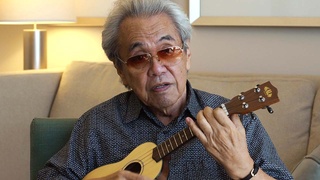Interviews
On his songfilm Omoiyari
Omoiyari means empathy. It’s kind of like acting on empathy. It’s in between consideration, sympathy, empathy, it’s like…people use it for guests. You think about your guest and what they would like. And you prepare for them, and that’s one use of omoiyari.
It follows me in my understanding about myself – my own identity and then also kind of question what it is to be an American citizen – what it means, what rights I have, what this country has done to the world, and how we can improve it and how we can improve equality.
I guess backtracking to why I’m making this film, after the election a lot of my fans were just really distraught, I could really tell. It was really bugging them. And I understand that and I think a lot of people look to my music to be kind of euphoric and to help them get through things so I think for me to do this is something that is important for…I do this for my listeners, to kind of help them cope or just to have a better understanding.
Date: August 21, 2018
Location: California, US
Interviewer: Sharon Yamato
Contributed by: Watase Media Arts Center, Japanese American National Museum
Explore More Videos





Postwar school-life
(b. 1930) Half Japanese and grew up in both Japan and the United States.

On Challenging Institutions
(1938-2020) Japanese American attorney and civil rights activist

Pop and Balls
(1938-2020) Japanese American attorney and civil rights activist

Re-examining Identity
(1941-2018) Japanese Canadian photojournalist and activist

How he got on the All-Navy show on Ed Sullivan
(b. 1934) Ukulele player from Hawaii





Conflicted about immigrating to America (Japanese)
(b. 1925) War bride

Defining "Nikkei"
(1941-2018) Japanese Canadian photojournalist and activist
